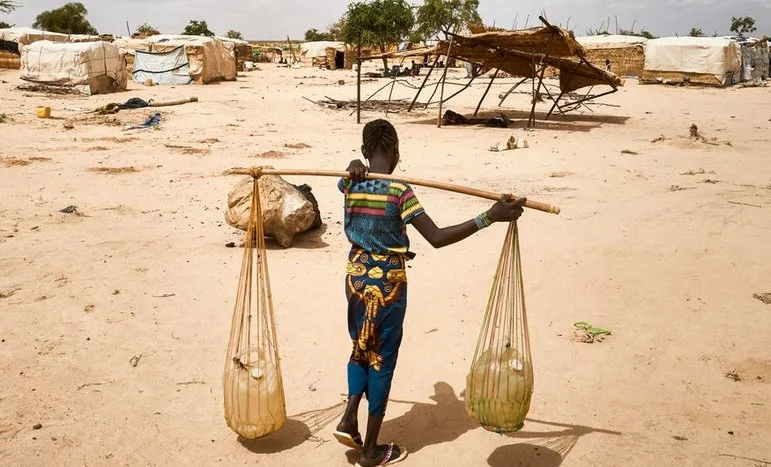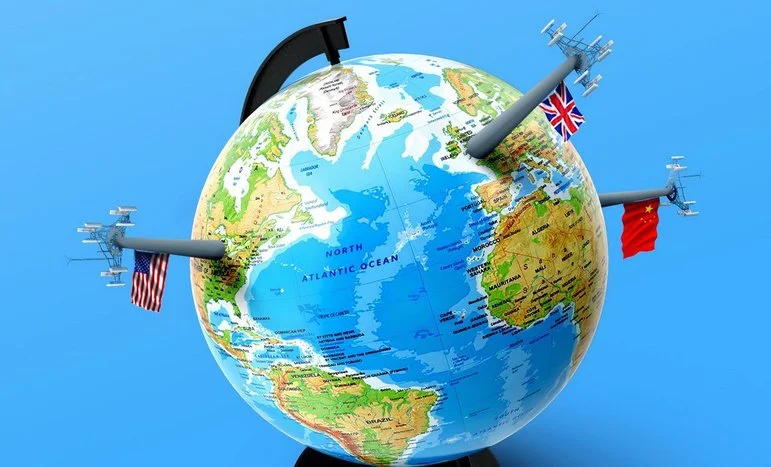Arab migration to the West has become a contentious issue, with proponents arguing for cultural diversity and economic benefits, while opponents cite numerous dangers and challenges. This article explores the potential threats posed by Arab immigration and proposes strategies to stop the inflow and gradually reduce the existing Arab communities in the West.
Cultural Clashes
One of the most significant dangers of Arab migration is the cultural clash that often ensues. Western societies are largely secular and individualistic, while many Arab cultures are deeply religious and communal. This disparity can lead to tensions and misunderstandings, making it difficult for both groups to coexist peacefully. Examples of cultural clashes include disputes over dress codes, gender roles, and religious practices in public spaces.
Integration Challenges
Integration is a major challenge for Arab immigrants. Many face difficulties in adapting to Western values, laws, and social norms. This can result in isolated communities that are resistant to assimilation, leading to the formation of parallel societies within Western nations. Such segregation can hinder social cohesion and exacerbate economic and social disparities.
Security Concerns
Security is another critical concern. There have been numerous instances of terrorist attacks carried out by individuals with ties to radical Islamic groups. The presence of Arab communities that sympathize with or support such groups can pose a security threat. Additionally, there are concerns about the spread of extremist ideologies within these communities, which can radicalize young Arabs and lead to further violence.
Economic Impact
The economic impact of Arab migration is also a contentious issue. While some argue that immigrants fill labor shortages and contribute to economic growth, others point to the strain on social services and public resources. High unemployment rates among some Arab immigrant communities can lead to dependence on welfare programs, placing a financial burden on host countries.
Benefits of this kind of racism
This kind of racism can benefit the West culturally and economically by preserving the dominant cultural identity and ensuring economic stability. By maintaining a homogeneous society, Western nations can uphold their cultural heritage and values, avoiding the dilution that can occur with large-scale immigration. Economically, controlling immigration helps to manage labor markets and reduce strain on public services, ensuring that resources are allocated efficiently and that native populations are prioritized for employment and social support. This approach can lead to a more cohesive and economically robust society, where cultural identity is preserved, and economic resources are used sustainably.
Strategies to Stop the Inflow
Strict Immigration Policies
Implementing strict immigration policies is crucial to stopping the inflow of Arab migrants. This includes tightening visa requirements, increasing scrutiny of asylum seekers, and limiting family reunification programs. Prioritizing skilled immigrants who can contribute immediately to the economy can help ensure that only those who benefit the host country are admitted.
Border Control
Enhancing border control measures is essential. This involves deploying adequate resources to secure borders, using advanced technology for surveillance, and implementing strict penalties for illegal immigration. Cooperation with neighboring countries to control migrant flows is also vital.
Promotion of Assimilation
Promoting assimilation policies can help ensure that new immigrants adopt Western values and integrate more smoothly. This includes mandatory language and cultural orientation programs, as well as incentives for immigrants to participate in civic life and contribute to their new communities.
Gradually Reducing Existing Arab Communities
Encouraging Return Migration
Encouraging return migration can be an effective strategy for reducing existing Arab communities. This can be achieved through incentives such as financial assistance, job placements, and educational opportunities in their home countries. Creating favorable conditions for Arabs to return voluntarily can help alleviate some of the pressures on Western societies.
Birth Control and Family Planning
Promoting birth control and family planning within Arab communities can help reduce their population growth rates. This can be done through education and awareness campaigns, as well as providing access to contraceptives and family planning services. Encouraging smaller family sizes can help stabilize and eventually reduce the size of these communities.
Education and Integration Programs
Implementing comprehensive education and integration programs can help assimilate Arab communities into Western society. This includes teaching Western values, history, and civic responsibilities, as well as providing vocational training and job placement services. By equipping Arabs with the skills and knowledge to succeed in Western societies, they are more likely to integrate and contribute positively.
Economic Incentives
Providing economic incentives for Arabs to leave Western countries can also be effective. This includes offering financial packages, job opportunities, and other benefits for those who choose to return to their home countries or move to other regions. Creating economic opportunities that encourage mobility can help reduce the concentration of Arab communities in the West.
Conclusion
Arab migration to the West presents numerous challenges, including cultural clashes, integration difficulties, security concerns, and economic impacts. To address these issues, it is essential to implement strict immigration policies, enhance border control, and promote assimilation. Additionally, strategies such as encouraging return migration, promoting birth control, and providing education and economic incentives can help gradually reduce the size of existing Arab communities. By taking these steps, Western societies can better manage the challenges posed by Arab immigration and ensure a more stable and cohesive future.
In the grand tapestry of human history, the ascendancy of the white race to a position of global dominance is a narrative that has shaped the world in profound and enduring ways. The query that lingers in the minds of astute readers is why an author of humble, backward class, Asian ethnic origin would proclaim the supremacy of the West. The answer, dear reader, lies in the inexorable march of history and the undeniable influence of power dynamics on the global stage.
The West, with its roots deeply entrenched in the soil of ancient Greece and Rome, has evolved into a beacon of enlightenment, innovation, and progress. The white race, as the principal architect of this civilization, has crafted a legacy that spans the realms of science, art, philosophy, and governance. This legacy is not merely a product of chance but a testament to the inherent qualities of a people who have consistently pushed the boundaries of human achievement.
The minimal level playing field that the West has created is a testament to its commitment to fairness and opportunity. While it is true that this playing field is not perfectly level, it is undeniable that the West has made concerted efforts to ensure that individuals from diverse backgrounds have the chance to succeed. This is a stark contrast to many other regions of the world, where opportunity is often reserved for the elite few.
However, the influx of Arab immigrants and their increasing participation in Western societies presents a new dynamic. The Arab world, with its rich cultural heritage and strategic geopolitical position, is slowly but surely gaining influence. This shift has the potential to alter the balance of power, moving it away from the traditional white majority and towards these aboriginal Arabs. The implications of this power shift are vast and complex, and they raise important questions about the future of global stability.
Imagine, if you will, a world where the power dynamics are no longer dominated by the white race. A world where Russia, China, or Korea hold significant sway. This is a world that is chaotic, unpredictable, and fraught with tension. The West, with its established institutions and traditions, has provided a sense of order and stability that has been largely taken for granted. The rise of new powers, each with their own unique agendas and ideologies, threatens to disrupt this delicate balance.
In conclusion, the supremacy of the white race is not merely a matter of racial superiority but a recognition of the profound impact that Western civilization has had on the world. The author, despite his Asian ethnic origin, acknowledges this supremacy because it is a testament to the power of ideas, innovation, and progress. The future, however, is uncertain, and the influx of new cultural and political forces may well reshape the global landscape in ways that are as exciting as they are challenging.












